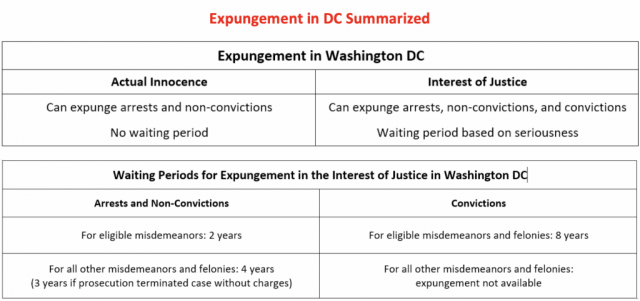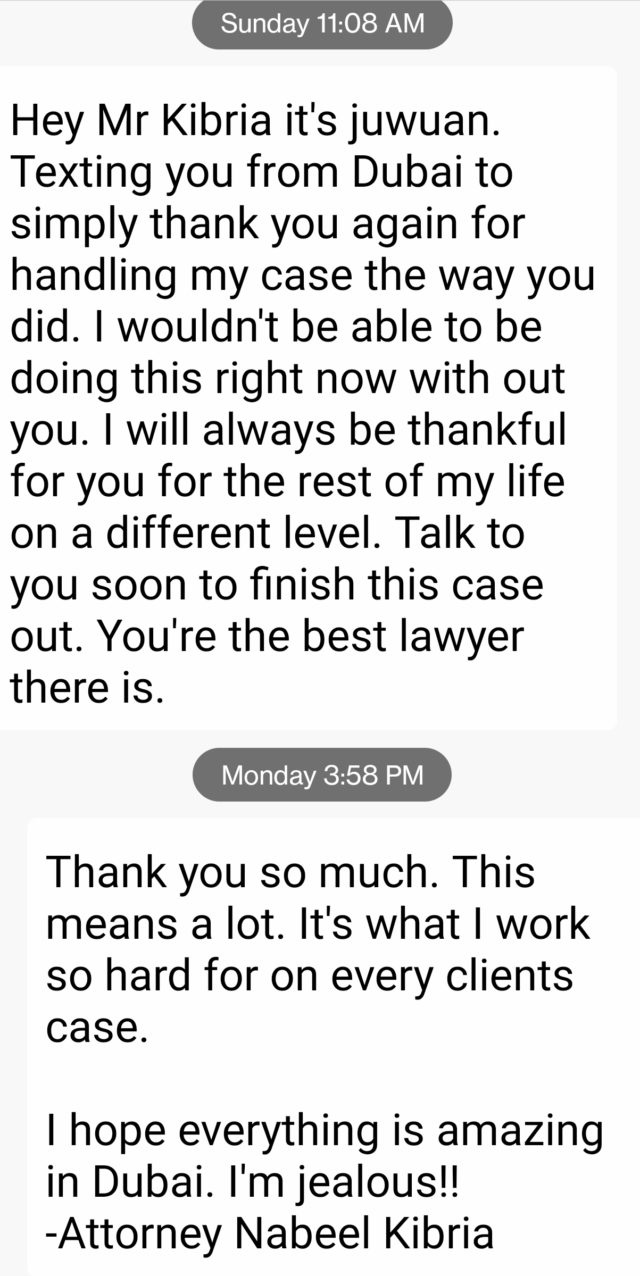Washington DC Record Sealing & Expungement - Ervin Kibria Law
Awards and Accolades
Logo Carousels
CALL 24/7 OR FILL OUT THE FORM BELOW TO DISCUSS YOUR CASE
Featured In






Contact Ervin Kibria Today:
Clearing Your Washington DC Criminal Arrest Record or History through Expungement
Having a criminal record in Washington DC can have far-reaching adverse effects on your quality of life. For example, DC criminal records can make it harder to find a well-paying job, affect your eligibility for loans, and make it difficult to rent an apartment. Other possible issues include losing child custody rights, revocation of your driver’s license, and not being allowed to own a firearm—and many, many others.
However, you do not have to be burdened with a criminal record for life. By meeting specific requirements, you may be able to expunge an arrest or conviction and seal your Washington DC arrest records and conviction records.
If the offenses you were convicted for are eligible for expungement, a Washington DC expungement lawyer can work to get your record sealed. Contact Ervin Kibria Law today to schedule a free consultation and explore your options.
How to Expunge a Criminal Record in DC
Expungement in DC is a complex process that is best handled with an experienced and expert Washington DC expungement lawyer. The DC expungement forms and procedures are lengthy and complicated, with many factors to consider to present a successful case.
Generally speaking, there are two bases to request expungement in Washington DC:
- Expungement on the basis of actual innocence.
- Expungement in the interest of justice.
You may also have to wait a certain amount of time after an arrest or conviction before you are eligible to request expungement.
Expungement on the Basis of Actual Innocence
Per DC Code §16–802, expungement based on actual innocence carries no waiting period after the case’s prosecution has ended. It is available for misdemeanor and felony charges alike.
However, you cannot expunge convictions based on actual innocence.
To succeed on a motion for expungement in DC based on actual innocence, you have to prove:
- The offense for which you were arrested or charged did not occur; or
- You did not commit the offense.
If the motion for expungement is made within four years after prosecution ends, the standard of proof is by a preponderance of the evidence. That means there must be a greater than 50% chance that your claim is valid.
If the motion for expungement is made more than four years after the prosecution ends, the standard of proof changes to clear and convincing. That means there must be a substantially more significant than 50% chance that your claim is valid.
If your claim succeeds, the court will order your charges expunged and the criminal record sealed. Once that happens, you will not commit perjury if you deny having ever been arrested or charged with the expunged offenses. In essence, you will be restored, in the eyes of the law, to a position before you were charged.
Expungement in the Interest of Justice
DC Code §16–803 concerns the expungement of a criminal record in the interest of justice. This motion is available for both misdemeanors and felony charges, with the seriousness of the offense affecting the waiting period.
There are three classes of offenses that are treated differently regarding expungement in the interest of justice:
- Eligible misdemeanors
- Eligible felonies
- All other misdemeanors and felonies
In the case of eligible misdemeanors, expungement in the interest of justice is available for arrests and non-convictions two years after the case’s prosecution ends. The burden is on the prosecutor to prove a preponderance of the evidence that it is not in the interest of justice to grant an expungement.
In the case of all other misdemeanors and felonies, expungement in the interest of justice is available for arrests and non-convictions four years after the prosecution ends, or three years if the prosecutor terminated the case before charging. But, again, it is your responsibility to prove by a preponderance of the evidence that expungement should be granted.
In the case of eligible misdemeanors and felonies, expungement in the interest of justice is available for convictions eight years after the case’s prosecution ends. The burden is on you to prove by clear and convincing evidence that expungement should be granted.
Any disqualifying arrests or convictions on your record will block your ability to request expungement in the interest of justice. The only exception is when attempting to expunge an arrest or non-conviction. In that case, disqualifying misdemeanor convictions block expungement for five years after you serve a sentence while disqualifying felony convictions do so for ten years.
If expungement is granted, your record will be sealed, and you will not be charged with perjury if you fail to acknowledge your arrests and convictions so expunged in response to an inquiry. However, you will still be required to reveal that you have a sealed record if you are asked during jury duty or apply for a position at government and law enforcement agencies.
What Are Eligible Misdemeanors and Felonies in Washington DC?
Per DC Code §16–801, eligible misdemeanors are simply any misdemeanors that are not “ineligible misdemeanors.” The list of ineligible misdemeanors is long, and you can find the complete list in DC Code §16–801(9).
Of note, ineligible misdemeanors in the District of Columbia include Driving Under the Influence (DUI), Driving While Impaired (DWI), and Operating While Impaired (OWI). An ineligible misdemeanor conviction cannot be expunged.
An eligible felony in Washington DC solely includes the crime of “failure to appear.”

Special Expungement Rules in Washington DC
Special rules of expungement apply to certain offenses in the District of Columbia. For example, per DC Code §25–1002, the purchase, possession, or consumption of alcohol by persons under 21 is a misdemeanor offense, but you only have to wait six months to request expungement.
If you have questions about convictions on your record, consult a Washington DC expungement lawyer. Contact expert attorney Nabeel Kibria at Ervin Kibria Law today for a free consultation.





